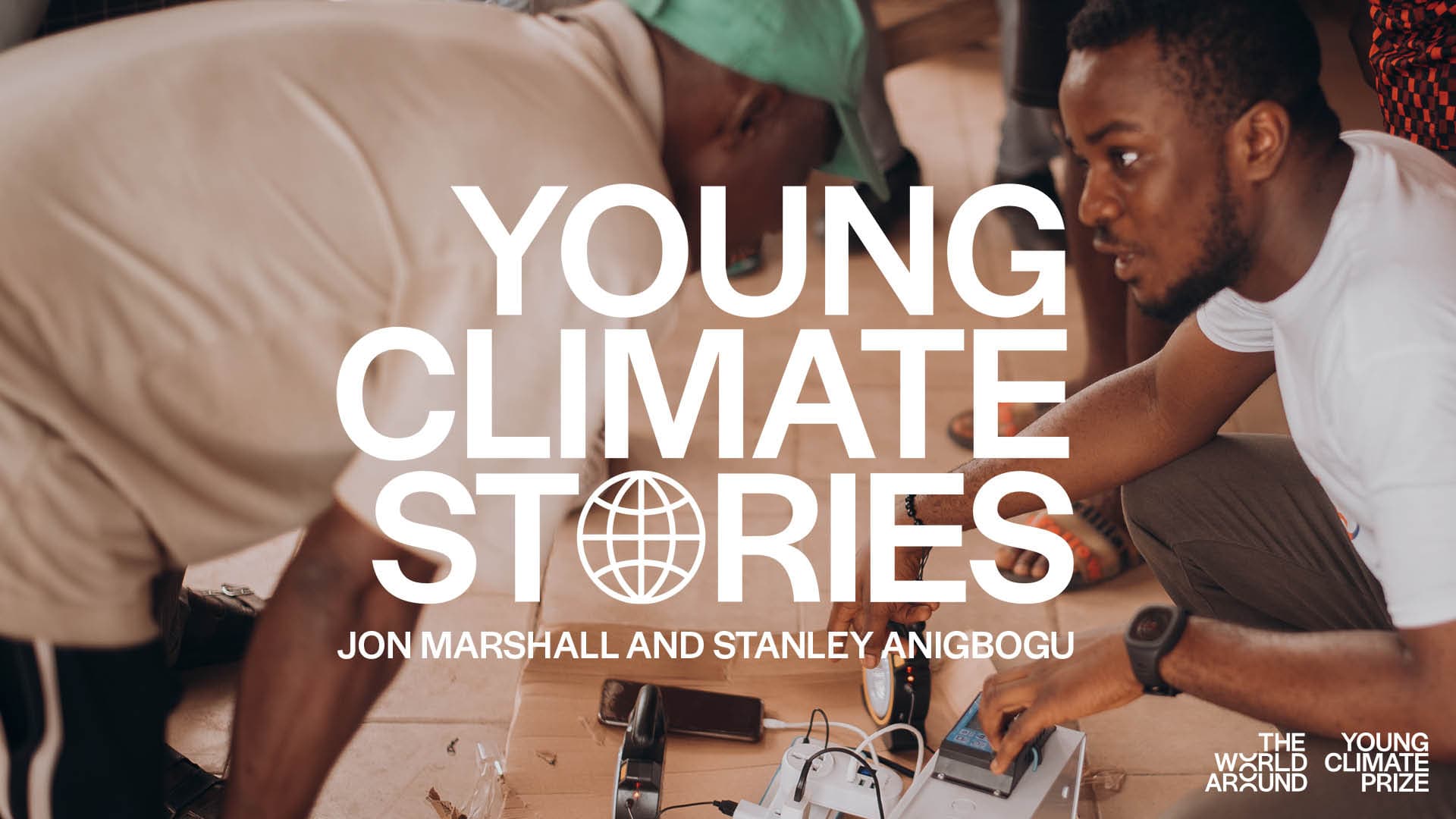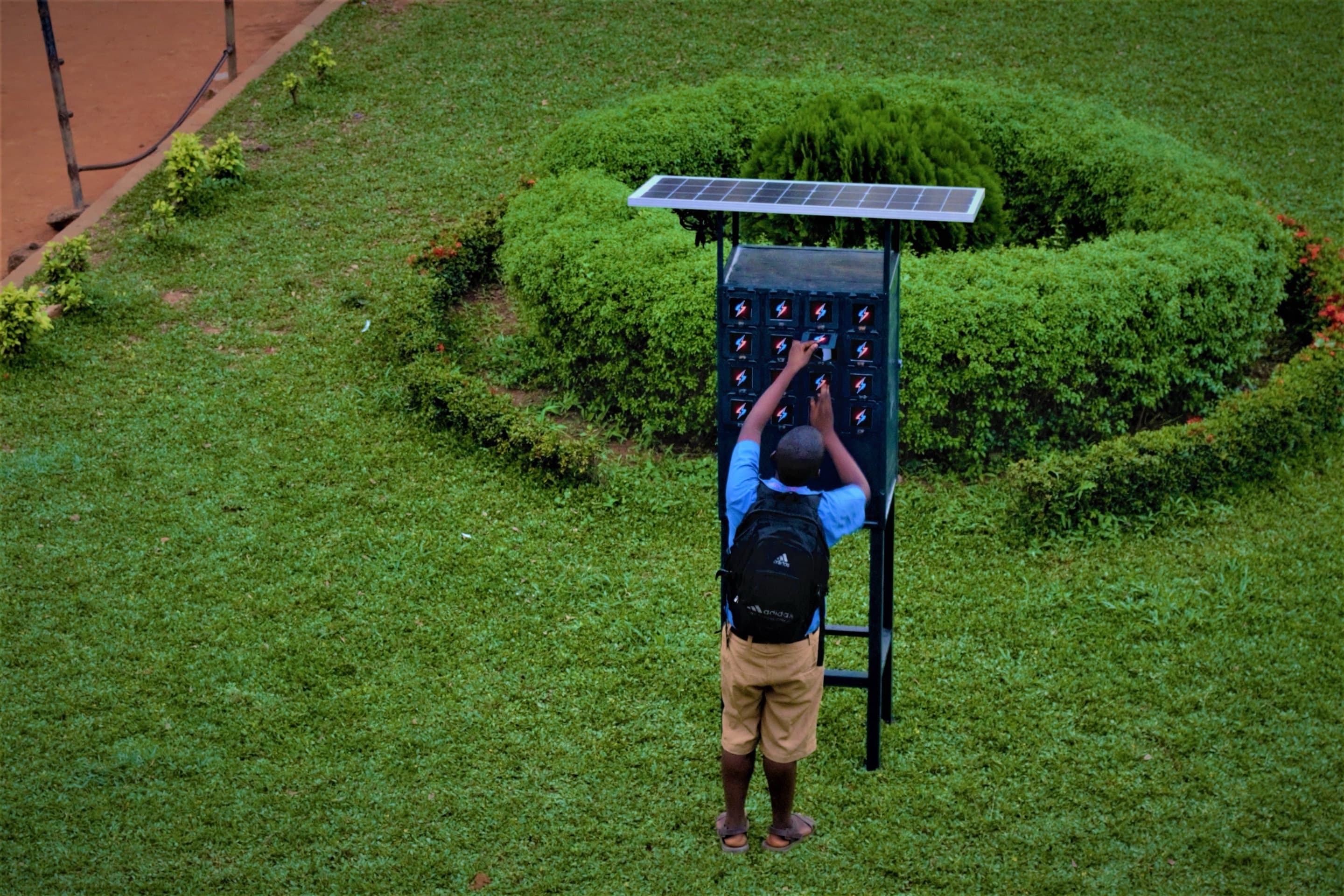“Designers today have a responsibility to turn waste materials into solutions for the climate crisis” says Stanley Anigbogu
Stanley Anigbogu, founder of ArtecHubs Nigeria and LightEd, shares his Young Climate Prize journey with Ana Minujin, discussing STEAM access, energy equity, and his vision for sustainable futures.
By Ana Minujin
%2520-%2520Stanley%2520Anigbogu.jpg%3F2025-10-05T21%3A28%3A01.647Z&w=3840&q=85)
Stanley Anigbogu, a young visionary Nigerian innovator and filmmaker, joins Ana Minujin of The World Around to discuss his inspiring journey as part of the inaugural Young Climate Prize cohort. As the founder of ArtecHubs Nigeria, Anigbogu has equipped thousands of young Nigerians with critical STEAM skills, bridging gaps in technology education, particularly for rural and underserved communities. His latest venture, LightEd, tackles energy inequity by repurposing electronic waste to create sustainable energy solutions. Recognized globally for his achievements—including being a member of the 2023 Young Climate Prize cohort—Anigbogu represents a new generation of changemakers. This interview is part of an ongoing series of Young Climate Stories in which we delve into the mentor-mentee relationships fostered as part of the program. Stanley shares his valuable insights on climate action, discusses storytelling’s role in innovation, and his vision for a more equitable and sustainable future.
Ana Minujin: Can you introduce yourself?
Stanley Anigbogu: Hello, everyone! My name is Stanley. I’m from Nigeria, and I’m speaking from Nairobi, Kenya.
AM: Could you tell us about the project you applied to the Young Climate Prize with?
SA: I applied with LightEd, a renewable energy project that focuses on converting waste materials, like electronic and plastic waste, into clean energy solutions. The goal is to provide communities with access to affordable and sustainable energy.
AM: What inspired you to start this project?
SA: I grew up experiencing frequent power outages, relying on candles and kerosene lamps for studying. This impacted my health and education, inspiring me to develop solutions for clean, affordable energy access. I want to ensure that others don’t face the same challenges.
AM: Can you describe the design of your project?
SA: Our design approach is inclusive, allowing anyone to participate. The idea for a modular lamp that anyone can assemble came from a child who asked how they could make their own lamp. Now, we’re focused on creating products that are not just functional but also empower users to feel ownership over the process.
AM: How have communities responded to your solutions?
SA: Many people love the lamps, but they also want to create their own versions, which has led to children and adults building lamps using materials they find, like plastic and electronic waste. It’s been inspiring to see this sense of ownership and innovation from communities.
AM: What has been the impact of the Young Climate Prize mentorship?
SA: The mentorship has been transformative. It’s changed how I view myself as a designer and how I communicate our work. Meeting mentors like Harry and John, who helped me see the impact of design storytelling, has been incredibly valuable.
AM: Why did you decide to apply for the Young Climate Prize?
SA: I wanted to learn and be part of a community of innovators. The opportunity to engage with people who are passionate about climate action and design has been inspiring, and I’ve gained insights that have allowed me to expand my impact as a designer.
AM: How do you see the role of designers in addressing climate change?
SA: Designers today have a responsibility to turn waste materials like plastic and electronics into solutions for the climate crisis. We need to consider the life cycle and end-of-life of products from the beginning in order to create truly sustainable solutions.
AM: What do you hope to achieve through Lighted?
SA: Lighted is focused on scaling affordable and sustainable energy solutions, and we’re working to make them accessible to more people. We’ve launched the Avatar Station, a community space for learning, sharing, and recycling plastic bottles, which has helped reduce costs significantly.
AM: What advice would you give to someone considering applying for the Young Climate Prize?
SA: The Young Climate Prize is an amazing platform that provides mentorship, visibility, and connections with industry leaders. Even without funding, the insights and network it offers are invaluable. I strongly recommend applying if you’re passionate about climate action and want to grow as a designer.
Related Content

Jon Marshall & Stanley Anigbogu

